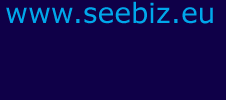Mind Like Water
David Allen
“I’m often identified by my description of a relaxed balance of perspective and control, known as ‘mind like water.’ This is not an empty mind (it’s impossible to have nothing on your mind, if you’re conscious); it’s a mind that is operating at a more productive and creative level. GTD (Getting Things Done method) helps you achieve and maintain that optimal condition, by using your mental energies to think about things, rather than think of them.”

David Allen (born December 28, 1945) is a productivity consultant who is best known as the creator of the Getting Things Done time management method. He claims to have had 35 professions before the age of 35. His career path has included jobs as a magician, waiter, karate teacher, landscaper, vitamin distributor, glass-blowing lathe operator, travel agent, gas station manager, U-Haul dealer, moped salesman, restaurant cook, personal growth trainer, manager of a lawn service company, and manager of a travel agency. He began applying his perspective on productivity with businesses in the 1980s when he was awarded a contract to design a program for executives and managers at Lockheed.
He is the founder of the David Allen Company, an executive coaching firm using his "Getting Things Done" methodology. The David Allen Company is focused on productivity, action management and executive coaching. His Getting Things Done method is part of his coaching efforts. He was also one of the founders of Actioneer Inc., a company specializing in productivity tools for the PalmPilot.
Allen has written three books: Getting Things Done: The Art of Stress-Free Productivity, which describes his productivity program; Ready for Anything: 52 Productivity Principles for Work and Life, a collection of newsletter articles he has written; Making It All Work: Winning at the Game of Work and Business of Life, a follow-up to his first book. In 2015, David Allen also wrote a new updated version of Getting Things Done: the Art of Stress-Free Productivity.
In Getting Things Done, Allen's premise is simple: our productivity is directly proportional to our ability to relax. Only when our minds are clear and our thoughts are organized can we achieve effective productivity and unleash our creative potential.
According to David Allen, we feel overwhelmed and distracted because we have too many commitments on our minds rather than taking action on them and/or filing them away in a system where we can revisit them as needed. These commitments remain in the category of unfinished business, or "open loops," which torture us and stress us out because we haven't figured out how to get rid of them.
Getting Things Done focuses on getting "stuff" --commitments, to-do items, reminders to gather information, requests for information or actions, etc.-- out of your short-term memory and into a physical, highly organized system that will remind you of the right stuff at the right time. Clearing everything out of your short-term memory allows you to do something that's very critical to productivity: focus on one thing at a time. If you're confident that your other commitments or to-dos are safely stored away somewhere and will not be lost or buried out of sight, you can devote all your attention, time and mental energy to one thing before knocking it out and moving on to the next.
All this appears simple but the tough part is the implementation. There are four major parts to the Getting Things Done system: 1. Collecting incoming stuff 2. Processing the stuff 3. Doing the stuff 4. Regularly reviewing your system to make sure your action items and project lists are up-to-date Collecting stuff is easy. That's just letting stuff accumulate in your physical or virtual receptacles like inboxes, voice mail or e-mail. Processing stuff is more involved. It requires sitting down with your inboxes and emptying them. That doesn't mean immediately doing the work associated with each piece of it as you pick it up --prioritization is important. It means taking a piece of it --an e-mail, a document, a voice mail-- and doing something with it: act on it right then, file it, trash it, delegate it, or create what Allen calls a "Next Action" item associated with it. The book offers practical tips, hacks, tools, and rules of thumb for deciding which of these things to do, and how to keep it all straight. Therein lies some of the book's best value. Doing the stuff is self explanatory, but again the value of being able to focus on one thing at a time without worrying that other things will be forgotten should be emphasized. It's much more productive, and much less stressful. Regularly reviewing your system is also important, and can be done in two ways: as needed and weekly. You may review your action item list (your "to-do list") several times a day as needed, if for nothing but that endorphin rush that comes with checking things off as "done" and deciding what to tackle next. Weekly reviews are also important, and are different in that you take the time to check on your list of active projects and make sure you have a Next Action item for each and every one.
Another important aspect of this system is the weekly review. A time and place must be set aside once a week to gather loose papers and put them in the in-basket for processing, process any notes, action items, etc., review past calendar dates for actionable items, review upcoming calendar dates, document and categorize all open loops and their next actions, review project lists and evaluate what needs to be done, review next action lists and review any additional checklists.
“Most people feel best about their work the week before their vacation, but it's not because of the vacation itself. What do you do the last week before you leave on a big trip? You clean up, close up, clarify, and renegotiate all your agreements with yourself and others. I just suggest that you do this weekly, instead of yearly.”
“Everything you’ve told yourself you ought to do, your mind thinks you should do right now. Frankly, as soon as you have two things to do stored in your RAM, you’ve generated personal failure, because you can’t do two things at the same time. This produces an all-pervasive stress factor whose source can’t be pin-pointed.”
“Use your mind to think about things, rather than think of them. You want to be adding value as you think about projects and people, not simply reminding yourself they exist.”
“You don't actually do a project; you can only take action steps related to it. When enough of the right action steps have been taken, some situation will have been created that matches your initial picture of the outcome closely enough that you can call it "done.”
In this book, Allen shows readers how to increase their ability to work better, not harder, every day. Based on Allen's highly popular e-newsletter, Ready for Anything, it offers readers 52 ways to immediately clear your head for creativity, focus your attention, create structures that work and take action to get things moving.
We're either being creative and making new stuff, or else trying to organize all the stuff that we have created so that we have more space (psychological or physical or otherwise) which will then allow us to be creative again.
Where Getting Things Done is a practical "how-to" book to help you implement a system of creatively getting your things done, Ready for Anything is more philosophical. It's more about the benefits of implementing the GTD system, how it helps in various aspects of our lives, how it works in theory and in practice.
Allen teaches valuable productivity principles and often introduces them as chapter titles. Some of them are: 1. You are not your work 2. Function follows form 3. Your power is proportional to your ability to relax 4. Only one thing on your mind is "in the zone" 5. Small things, done consistently, create major impact 6. It's easier to move when you are in motion 7. You have to do something to know something.
8. For more clarity, look from a higher place.
9. Your system has to be better than your mind, for your mind to let go.
10. You're the only one playing your game.
All of these things make sense; they are in the category of common sense but too many of us don't include them in our daily approach to life.
“Sometimes the biggest gain in productive energy comes from clearing the cobwebs, dealing with old business, and clearing the desks—cutting loose debris that impedes forward motion.”
“If you find yourself in a hole, the first thing to do is stop digging. —WILL ROGERS”
“An infinite number of things in the universe are held back from you, only by your altitude and attitude.”
David Allen shows us how to excel in dealing with our daily commitments, the unexpected, and the information overload that threatens to drown us.
Making It All Work was introduced as the sequel to Getting Things Done, but it is more of a revision of the original GTD system. Here, less emphasis is put on Allen's recommended tools, and more on the system itself, and how it interacts with bigger-picture things -- goals and principles that can't easily be turned into next actions.
The book starts out with chapters on the GTD system, and chapters on the main concepts of capturing, clarifying, organizing, reflecting and engaging. Then, there's a chapter on applying the concepts to life and work, followed by chapters on getting perspective on various levels of your life. It ends with a summary and a description of making it all work in the real world.
Allen also uses this book to address his critics, and does an admirable job. Much of the criticism of GTD has been aimed at purists or those who take Allen's ideas to an extreme. He also expands on the different levels of perspective in this book, something that was somewhat lacking in Getting Things Done.
“It is a tricky business knowing when you should set goals and objectives in order to achieve focus, and when you would be better off dealing with the acceptance and management of your current reality so you can later step into new directions and responsibilities with greater stability and clarity. Only you will know the answer to that, and only in the moment.”
“For a long time, it had seemed to me that life was about to begin…. But there was always some obstacle in the way, something to be gotten through first, some unfinished business, time still to be served, a debt to be paid. Then life would begin. At last it dawned on me that these obstacles were my life. —Alfred Souza”
“The trick is to ensure not so much that what you are doing is the right thing for you all the time (how, ultimately, could you know that for sure?), but that you are firmly in the driver’s seat with a functioning process for discovering and engaging your best choice.”
“Much of what sophisticates loftily refer to as the “complexity” of the real world, is in fact the inconsistency in their own minds. —Thomas Sowell”














